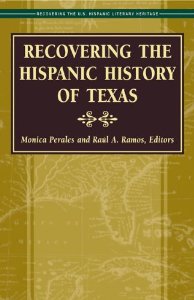

The eight essays included in this volume examine the dominant narrative of Texas history and seek to establish a record that includes both Mexican men and women, groups whose voices have been notably absent from the history books.
Finding documents that reflect the experiences of those outside of the mainstream culture is difficult, since historical archives tend to contain materials produced by the privileged and governing classes of society. The contributing scholars make a case for expanding the notion of archives to include alternative sources. By utilizing oral histories, Spanish-language writings and periodicals, folklore, photographs, and other personal materials, it becomes possible to recreate a history that includes a significant part of the states population, the Mexican community that lived in the area long before its absorption into the United States.
These articles, originally presented as part of the Hispanic History of Texas Projects first conference held in conjunction with the Texas State Historical Associations annual conference in 2008, primarily explore themes within the field of Chicano/a Studies. Divided into three sections, Creating Social Landscapes, Racialized Identities, and Unearthing Voices, the pieces cover issues as diverse as the Mexican-American Presbyterian community, the female voice in the history of the Texas borderlands, and Tejano roots on the Louisiana-Texas border in the 18th and 19th centuries.
In their introduction, editors Monica Perales and Raúl A. Ramos write that the scholars, in their exploration of the states history, go beyond the standard categories of immigration, assimilation, and the nation state. Instead, they forge new paths into historical territories by exploring gender and sexuality, migration, transnationalism, and globalization.